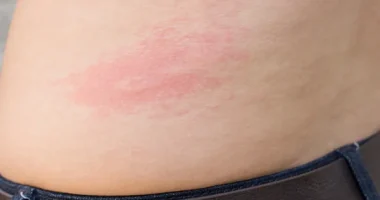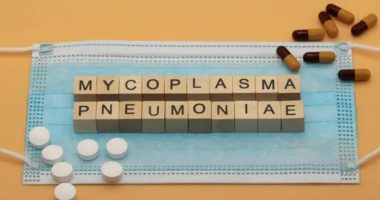Sleep apnea is a common but serious sleep disorder in which breathing repeatedly stops and starts as you sleep. If you feel tired during the day after a full night sleep and snore loudly as well you may be suffering from sleep apnea. Those who have this disorder, may not be aware of the short breathing pauses that occur hundreds of times at night while they sleep. All they wake up to feel is low energy, mental dullness, or unproductiveness during the day.
Types
There are three main types of sleep apnea, each characterized by different symptoms:
1. Obstructive sleep apnea – occurs when the throat muscle relaxes, the airway repeatedly becomes blocked, limiting the amount of air that reaches your lungs. When this happens, you may have pauses and snore loudly while trying to breathe. Your brain and body at that moment become oxygen deprived and you may wake up. This may happen a few times a night, or in more severe cases, several hundred times a night.
This type is the most common and many sufferers may not realize its presence until a bed partner or roommate complains about their snoring. So it is important you become conscious of your health if you are a sufferer as it can take a serious toll on your physical and emotional health. Symptoms often include:
- Loud snoring
- Gasping or choking during sleep
- Morning headaches
- Daytime fatigue and sleepiness
- Difficulty concentrating
2. Central sleep apnea – is a much less common type that involves the central nervous system. It occurs when the brain fails to signal the muscles that control breathing. Unlike OSA, there is no physical blockage of the airway and people with this form of disorder rarely snore. This type is often associated with underlying medical conditions such as heart failure, stroke, or neuromuscular diseases. Symptoms may include:
- Waking up short of breath
- Insomnia
- Daytime sleepiness
- Difficulty concentrating
Complex sleep apnea – also known as treatment-emergent central sleep apnea happens when someone has both obstructive and central sleep apnea. This condition typically presents as OSA but can transition into CSA when treated with therapies like CPAP. Symptoms are similar to those of both OSA and CSA, including disrupted sleep and excessive daytime sleepiness
What are sleep apnea symptoms?
Identifying it on your own can be tough since the most prominent symptoms only occur when you’re asleep. However, you can get around this difficulty by asking a bed partner or roommate to observe your sleep habits. Another option you can use is recording yourself during sleep. If pauses occur while you snore, and if choking or gasping follows the pauses, that simply means you have sleep apnea. The following are common symptoms:
- Chronic and loud snoring at night
- Choking, snorting, or gasping during sleep
- Having morning headaches
- Waking up with a dry mouth or sore throat
- Impotence
- Having breathing pauses
- Waking up at night and feeling short of breath
- Feeling sleepy and fatigued during the day
- Having a restless or fitful sleep (Insomnia)
- Going to the bathroom frequently during the night
- Forgetfulness and difficulty concentrating while awake
- Having moodiness, irritability, or depression
- Sleeping excessively during daytime (hypersomnia)
If you think you are affected by any of the symptoms mentioned, see your doctor. Treatment may ease your symptoms and can help prevent heart problems and other complications.
Read more about the causes of Insomnia and treatment
Causes of sleep apnea
Obstructive sleep apnea (OSA)
Although anyone can have it, the risk becomes higher if you’re:
- Overweight
- A male
- From a family with a history of sleep apnea
- Over the age of 50
- A chronic smoker
- Diagnosed with high blood pressure
- Black, Hispanic, or a Pacific Islander
- Someone with a neck circumference greater than 15.75 inches (40 cm)
In addition, a deviated septum, receding chin, or enlarged tonsils or adenoids are also physical attributes that put you at risk for obstructive sleep apnea. While asleep, your airway may be blocked or narrowed. This is simply because your throat muscles tend to relax more than normal. It can also occur as a result of allergies or other medical conditions that cause nasal congestion and blockage.
Central sleep apnea
Like obstructive sleep apnea, central sleep apnea is more common in males and people over the age of 65. However, unlike OSA, it is often caused by serious illness, such as heart disease, stroke, neurological disease, or spinal or brainstem injury. The first step to treatment is to treat the existing medical conditions causing it.
People with obstructive sleep apnea can also develop central sleep apnea if they’re being treated with positive airway pressure (PAP) devices.
Risk factors
Anyone (including children) can have Sleep apnea. However, certain factors are liable to increase your risk.
Inability to breathe freely – if you have nasal congestion or you struggle to breathe through your nose — whether from allergies or anatomical problems — your chances of developing obstructive sleep apnea may be high.
Neck size – your risk chances become higher if you have a neck size of 17 inches or more for men, or 16 inches or more for women. A large neck has more soft tissue that can block your airway during sleep. Also, tonsils or adenoids also can enlarge and block the airway, particularly in children.
Male gender – men are more likely to have sleep apnea than are women. However, women’s risk heightens after menopause and if they gain excess weight.
Your age – Middle-aged or older adults tend to be affected more by sleep apnea than younger adults.
Overweight – being obese (obesity) increases your risk. Your breathing can greatly be obstructed by fat deposits around your upper airway if you fail to put your weight in check.
Your family history – Sleep apnea is a heritable condition. That is your risk of having it may become high if a family member has it. The inherited traits that contribute to this include obesity and physical features such as a recessed jaw.
Alcohol and other substances – using alcohol and other substances like sedatives or tranquilizers relax the muscles in your throat, as a result, increases your risk.
Smoking – people who smoke are more likely to have obstructive sleep apnea than those who’ve never smoked. Smoking can make you have this disorder by increasing the amount of inflammation and fluid retention in your upper airway.
Heart disorders – If you have congestive heart failure, your risk of having central sleep apnea can increase.
Stroke – This is another health condition that can aggravate it. Your risk of having this type of sleep apnea increases if you have had a stroke.
Using narcotic pain medications – Your chance of getting central sleep apnea increases if you are using opioid medications. Especially long-acting ones such as methadone.
Complications
Sleep apnea is a dangerous medical condition with several complications that include:
Liver damage – It can lead to abnormal results on liver function tests. Your liver is also more likely to show signs of nonalcoholic fatty liver disease.
Type 2 diabetes – People who have sleep apnea are more likely to develop insulin resistance and type 2 diabetes easily. (Also read how to reduce your blood sugar naturally)
Metabolic syndrome – Usually, people with this disorder experience high blood pressure, abnormal cholesterol levels, high blood sugar, and increased waist circumference thus – leading to a higher risk of heart disease.
High blood pressure or heart problems – This sleep disorder can lead to sudden drops in blood oxygen levels and as a result, increases blood pressure and strain the cardiovascular system. It, therefore, increases your risk of having high blood pressure or hypertension.
You may also be at a high risk of having a recurrent heart attack, stroke, and abnormal heartbeats, (atrial fibrillation) if you have obstructive sleep apnea. Having heart disease, many episodes of low blood oxygen (hypoxia or hypoxemia) can lead to sudden death from an irregular heartbeat.
Surgery and medications – If you have this disorder, you are more likely to encounter complications after major surgery especially when sedated and lying on your back. This is because of the existing breathing problems. Therefore, it is important to discuss your condition and treatment with your doctor before having any surgery. Also, using certain medications and general anesthesia may lead to complications if you have obstructive sleep apnea.
Daytime fatigue – Having normal and restorative sleep can be impossible due to waking up repeatedly during your sleep at night. As a result, it causes severe daytime drowsiness, fatigue, and irritability.
In addition, you may fall asleep at work while watching TV or even when driving. You may also experience difficulty paying attention to details. A high number of motor vehicle and workplace accidents is linked to people with sleep apnea.
Sufferers of this disorder may also get tempered easily, depressed or moody. It may also cause children or adolescents to perform poorly in school or have behavior issues.
Partner discomfort – Having this condition makes you snore loudly and when this happens, anyone who sleeps near you may want to keep distance during bedtime as they may not have been getting good sleep. This may make partners to move to another room, or even to another floor of the house, for better sleep experience.
When to see your doctor
Loud snoring can be a sign of a serious problem. However, not everyone who has sleep apnea snores. Consider speaking and booking an appointment with your doctor if you have any of the signs or symptoms mentioned here.
Ahead of your appointment, modify your diet and make sure you have a sleep diary. Take a family member or bed partner along, if possible. The essence of going with a bed partner or family member is, you may be asked a series of questions that either of them might be more aware of than you are. These questions can be about;
- Your symptoms, (both related and unrelated)
- Your breathing pauses
- Your family history of a sleep disorder
- Medications, vitamins or supplements you are on
- How you take your medications (i.e doses)
- How continuous your symptoms have been
- How severe your symptoms are
- Your alcohol intake and how it affects your condition
- Your sleep position and its effect on your condition
In turn, ask your doctor the following questions;
- What’s the most likely cause of my symptoms?
- What tests should I go for?
- Do these tests require special preparation?
- Is my condition likely temporary or long-lasting?
- What treatments are available?
- Which treatment do you think would be best for me?
- I have other health conditions. How can I best manage these conditions together?
- Should I see a sleep apnea specialist?
- What are the possible sleep problems that can cause me to be fatigued, sleepy, and irritable?
Tips to sleep better
Sleep apnea can be a serious problem that requires breathing devices, medication, and surgery for treatment. However, a few lifestyle changes can help improve your quality of sleep. Which include
- Alter your sleep position by lying more on your side.
- Avoid or limit your alcohol intake.
- Quit smoking.
- Avoid being overweight.
- Don’t take sleeping pills unless recommended by a doctor – they can aggravate your condition.
References
1. American Academy of Sleep Medicine. (2008). Obstructive Sleep Apnea. https://aasm.org/resources/factsheets/sleepapnea.pdf
2. McNicholas, W. T., & Pevernagie, D. (2022). Obstructive sleep apnea: transition from pathophysiology to an integrative disease model. Journal of Sleep Research. https://www.ncbi.nlm.nih.gov/pmc/articles/PMC9539471/
3. Cleveland Clinic. (n.d.). Sleep Apnea. https://my.clevelandclinic.org/-/scassets/files/org/neurological/sleep-disorders/fact-sheets/8-sleep-apnea.pdf?la=en
4. American Academy of Sleep Medicine. (2020). Clinical Practice Guidelines for the Treatment of Obstructive Sleep Apnea in Adults. https://aasm.org/resources/clinicalguidelines/osa_adults.pdf
5. Alzahrani, M. A., et al. (2024). The impact of obstructive sleep apnea on health-related quality of life: a systematic review. Journal of Clinical Medicine, 13(9), 2538. https://www.mdpi.com/2077-0383/13/9/2538
6. El-Masry, R., et al. (2023). The role of sleep apnea in the development of cardiovascular diseases. The Egyptian Journal of Hospital Medicine, 2023. https://ejhm.journals.ekb.eg/article_254080_72ac36fee6ed5cb0edb9e4c53a566023.pdf








